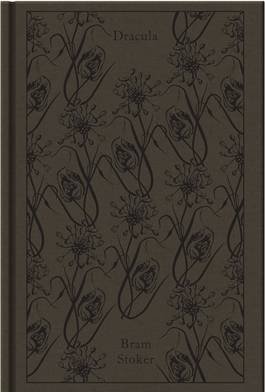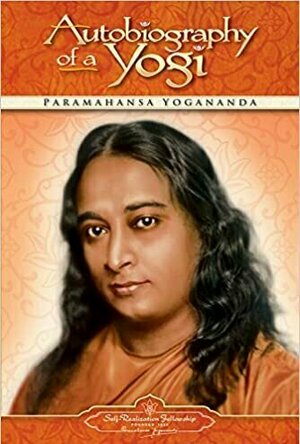
Autobiography of a Yogi
Book
When AUTOBIOGRAPHY OF A YOGI first appeared in 1946 it was acclaimed as a landmark work in its...

Exporting Democracy: The United States and Latin America
Book
The idea that the United States can and should help Latin America achieve democracy has been a...
The Bandersnatch (199 KP) rated Dracula in Books
Nov 7, 2019
Dracula was published in London in May 1897 by Archibald Constable & Company and was later copyrighted in the U.S in 1899 and published by Doubleday & McClure of New York. Despite having decent praise form reviewers it wasn't an immediate bestseller. Although the English newspaper the Daily Mail ranked Stoker's writing prowess in Dracula above that of Mary Shelly, Edgar Allen Poe and Emily Bronte's Wuthering heights. Unfortunately it didn't make Stoker that much money and he'd had to petition for a compassionate grant from the royal literary fund. When he died his widow was forced to sell his notes and outlines of the book at an auction in 1913. It was the unauthorised adaption of Nosferatu by F. W. Murnau in 1922 and the resulting legal battle made when Stokers widow took affront that the novels popularity began to grow.
Before writing Dracula Bram Stoker had been researching European folklore and stories of vampires having been most influenced by Emily Gerard's “Transylvania Superstitions” 1885 essay...which included content about the vampire myth. Some historians insist that Vlad iii Dracula (More commonly known as Vlad the impaler) was the model for Stokers count but there's been no supporting evidence to make that true. According to one expert Stoker only borrowed the barest minimum of information of the Wallachian tyrant and he's not even mentioned in Stokers notes. Stoker was a member of the London library during the 1890's where books by Sabine Baring-Gould, Thomas Browne, AF Crosse and Charles Boner are attributed to Stokers research. Stoker would later claim he'd had a nightmare caused by over-eating crab meat about a “Vampire king” rising from his grave. Whitby on the Yorkshire coast contributed its landscape since Bram Stoker often holidayed there during the summer.
Dracula wasn't Stokers first choice as title for the story since he cycled through The Dead Un-Dead then simply the Un-Dead the count wasn't even supposed to be Count Dracula having had the name Count Wampyr for several drafts before Stoker became intrigued by the name Dracula. After reading “An account of the principles of Wallachia and Moldavia with political observations relative to them” written by author William Wilkinson (Published in 1820). the descendants of Vlad ii of Wallachia took the name Dracula or Dracul after being invested in the Order of the Dragon in 1431. In the old Romanian language the word Dracul mean “the Dragon” and Dracula meant “Son of the Dragon”. Nowadays however Dracul means “the Devil”
Whilst Dracula is known as THE Vampire novel its not the first. Johan Wolfgang Von Goethe had his book the Bride of Corinth published in 1797, 1871's Carmilla (a story about a lesbian vampire) was written by Sheridan Le Frau and James Malcolm Rymer's penny dreadful series Venny the Vampire was a product from the mid Victorian period. Even John Polidori created an image of a vampyric aristocrat in his 1819 story The Vampyre when he spent a summer with Merry Shelly (creator of Frankenstein) and her poet husband Percy Bysshe Shelly and Lord Bryon in 1816.
I really love Dracula. It showed the madness, the ethereal quality and the ultimate danger of what a vampire could do. Like many other goth inclined teenagers trying to find their feet in the world Dracula definitely added its two cents to my self worth and love of all things macabre. The fact it was written by a Victorian writer has added a unusual depth to the story as only a Victorian writer could. The culture of the Vampire has become deep rooted and wide spread in its acceptance and Dracula has definitely spearheaded such a phenomenon.
Abraham “Bram” Stoker was Born in Dublin, Ireland on the 8th of November 1847, He was the third of seven children born to Abraham and Charlotte Stoker and was bedridden with an unknown illness until he recovered at seven. He started schooling at a private school run by the Reverend William Woods and grew up without serious illness. Stoker excelled at sports at Trinity College Dublin having graduated in 1870 with a BA (Bachelor of Arts). He was an Auditor of the College Historical Society and the president of the University Philosophical Society where his first paper was on Sensationalism in fiction and society.
Thanks to his friend Dr. Maunsell, Stoker became interested in the theatre as a student and whilst working for the Irish civil service he became a theatre critic for the Dublin evening mail where he attracted notice for the quality of his reviews. Stoker gave a favourable review of Henry Irving's adaption of Hamlet in December 1876, this prompted Irving to invite him to dinner where they ended up becoming friends. Stoker wrote The Crystal Cup which was published by the London society in 1872 and The chain of Destiny which was released in four parts in the Shamrock. Stoker also wrote the non-fiction book the duties of clerks of petty sessions in Ireland which was published in 1879.
Bram stoker married Florence Balcombe the daughter of a lieutenent-colonel in 1978 and they moved to London. Where Stoker ended up the Business manager of the Lyceum theatre as well as manager for Henry Irving- a position he held for 27 years. Despite being a very busy man Stoker ended up writing several novels (as well as Dracula) Including The Snakes pass in 1890, the lady of the shroud in 1909 and the lair of the white worm in 1911. when Henry Irving died in 1906 he published his personal reminiscences of Henry Irving. Stoker also managed productions at the Prince of Wales theatre.
Bram stoker died after a series of strokes in London on April 20th 1912, the cause of death is split between the possibility of Tertiary Syphilis or overwork. He was cremated and was placed in a display urn at Golders Green Crematorium in North London, he was later joined by the ashes of his Son Irving Noel Stoker in 1961, his wife Florence was meant to join them but her ashes were scattered at the Gardens of rest.
Stoker was honoured with a Google Doogle (the banner on goggles homepage) on November 8th 2012 commemorating the 165th anniversary of his birth. An annual festival in honour of Bram Stoker happens in Dublin, its supported by the Bram stoker estate and was/is usually funded by Dublin City Council and Failte Ireland.
My opinion of Bran stoker is that of a decent hard working man who loved life. Stoker epitomises the phrases of “a man on a mission” and “a man who hussles”. Having worked extremely hard both creatively as a novelist and business wise as a theatre manager Stoker pretty much showed that if you work hard you could pretty much do anything you set your mind to.
And there you have it a book for all the ages, definitely under the banner of AWESOME!!!.

Deep Sleep by Glenn Harrold, a Self-Hypnosis Meditation for Relaxation
Health & Fitness and Lifestyle
App
Download Deep Sleep Now and Sleep Well Tonight! Glenn Harrold's powerful deep sleep hypnotherapy...
Haley Mathiot (9 KP) rated Happy Birthday to Me (Birthday Trilogy, #1) in Books
Apr 27, 2018
As he aged rapidly he was faced with a reality check: His life would end in a few short weeks. He would never see his graduation. His girlfriend breaks up with him and goes back to her ex. He's not sure if his parents love him or hate him. And they're not sure either.
Then he meets Leisel. And Leisel had her own secret.
The first third of the book frustrated me because Cameron was stupid, rude, immature, irresponsible, and disrespectful. But further in, I started to feel for him a little more. Near the last third of the book I was really enjoying it, I liked all the characters more (or less, in his girlfriend's case) and I was hooked on the story. It was fast-paced and interesting. I think the part I liked most was watching Cameron change from an obnoxious jerk into someone who had some depth and good qualities. It was what I wanted to see, and it made me happy to see him change.
The writing was a little frustrating only because there were ALL CAPS sprinkled in through the book. Now I understand why Rowe used all caps (If I woke up and looked like a thirty year old, I'd say everything in all caps too) but it still makes the editor in me cringe. Aside from that, I liked the writing and the style, I liked the pacing, I liked the humor, and I liked the dialogue. I don't often find a self-published book with good writing, so I'm wary to accept them. I'm glad I made an exception!
Content/Recommendation: Some language, some sexual references, no sex. Ages 16+
blueirisfox (125 KP) rated Write to Market: Write a Book that Sells (Write Faster, Write Smarter 3) in Books
Feb 15, 2020 (Updated Feb 15, 2020)
From watching his videos, I understood the level and tone of the advice he would be giving in his books, and I've gotta say, the guy is an absolute gift to the writing community.
Even if you don't buy any of his books, there is so much to learn from him for free on his YouTube channel: from plotting to selling, this guy pretty much has it all.
Saying that, I still 100% recommend buying his Write Faster, Write Smarter book series, because I can't stress enough how amazing his targeted exercises are.
For this specific book in the series, he explains how to effectively sell books to targeted audiences. This can sound a bit controversial, as if you were simply copying an idea and trying to cash in on it. BUT THAT'S NOT IT AT All. Chris Fox himself shuts down the idea of copying hit books quite early on. What this book will do, is explain to you how to use popular tropes to your advantage.
If you're not really sure about this book from my review, check out its page on Amazon and read the first few pages. Better yet, check out Chris Fox's YouTube channel and get a feel for what this guy is like, because at the end of the day we all absorb information differently and find certain things useful that others simply don't.
Anyways, I hope that this helped someone find the tools that they need in order to do Storytelling some justice.
Peace out,
blueirisfox

12-Step Addiction Recovery Program Through Meditations
Book and Medical
App
NEW! Breakthrough with this 12-Step Meditation Program! This app follows the principles of the 12...
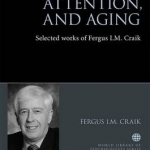
Memory, Attention, and Aging: Selected Works of Fergus I.M. Craik
Book
Memory, Attention, and Aging is a collection of some of the most influential journal articles...
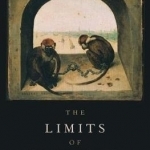
The Limits of Free Will
Book
The Limits of Free Will contains a selection of papers concerning free will and moral...
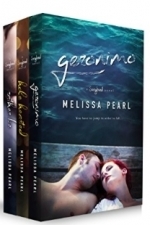
A Songbird Novel Box Set #3 (Geronimo, Hole Hearted, Rather Be)
Book
Melt your heart romance and sizzling chemistry infused with soul inspiring music. A set of...
